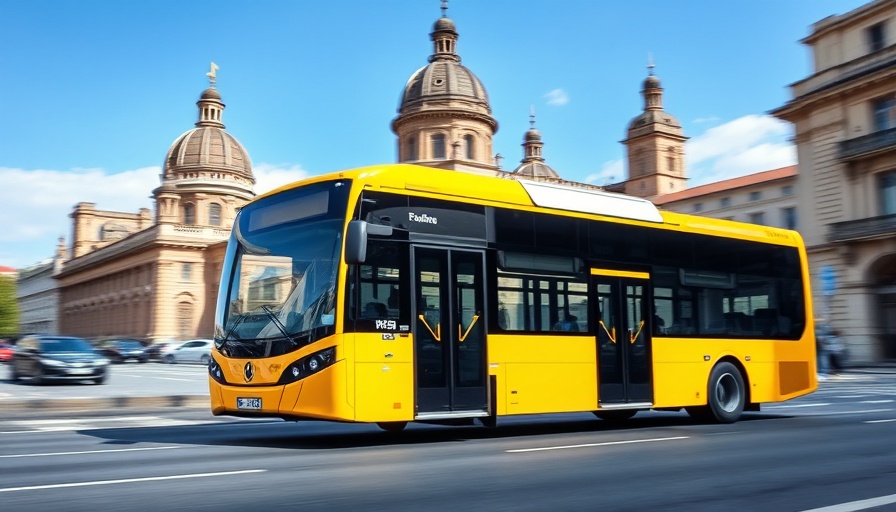
The Controversial Loss of a Green Bus Contract in Brighton
The Big Lemon, a pioneering electric bus company based in Brighton & Hove, is facing controversial challenges following the city council's decision to award its bus operation contract to competitor Compass Travel, which primarily operates diesel buses. This decision has sparked outrage among environmental advocates and local residents who have supported The Big Lemon's commitment to sustainability, emphasizing the contradiction in awarding a contract to a company that employs petrol and diesel vehicles. Local authorities and company representatives are now at an impasse regarding adherence to Brighton & Hove’s ambitious net-zero goals.
Environmental Implications of the Decision
This situation raises serious questions about the implications of reverting to a diesel fleet in a city that has prided itself on maintaining a zero-emission bus service for almost eight years. According to Ron Tanner, chair of The Big Lemon, the council's shift betrays its own environmental objectives, picking a solution that could undermine their commitment to lower emissions. The council argues that Compass Travel has committed to implementing buses that meet Euro 6 emissions standards, but the community remains skeptical, demanding transparency regarding the plans to phase these vehicles out.
The Community's Reaction: A Step Backward?
Brighton & Hove’s residents are largely dismayed at the potential regression to older technology in their public transport system. The Big Lemon’s arrival in 2017 marked a significant leap in local transportation infrastructure, contributing to an eco-friendly community image. Critics of the council’s decision argue that this marks a regression to reliance on fossil fuels, directly opposing the city’s climate change objectives. Community members have expressed frustration, worried that this decision cements a narrative—one that signals an unwillingness to truly embrace green innovation.
The Future of Transportation in Brighton
As the council moves forward with its contract, many in the community are questioning what this means for the future of transportation in Brighton. Local environmental advocates are pushing for clearer strategies from the council regarding electric vehicle integration and long-term solutions for a sustainable public transport system. They assert that continuing investment in electric technologies, such as those pioneered by The Big Lemon, is crucial for meeting future carbon-neutral goals.
Exploring Alternatives and Innovations in Green Transit
This debacle also opens the conversation surrounding the assumed reliability and resilience of electric bus networks. The Big Lemon, despite ongoing operational challenges, serves as a crucial test case for electric public transit, showcasing both the potential and inherent risks of transitioning to green fleets. The council’s switch back to diesel signifies not just a procurement decision but also raises concerns about the political will to elevate green energy solutions.
Guidance for Homeowners and Businesses Interested in Green Energy Solutions
For homeowners and businesses keen on utilizing solar and green energy, this striking scenario in Brighton relays a message that local governance is pivotal in the advancement of sustainable technologies. Exploring options such as solar panels, electric vehicle chargers, and battery storage systems is essential. Individuals and businesses can benefit from existing grants and resources, echoing the trends witnessed in electric bus mechanisms. It is imperative that eco-conscious stakeholders communicate with local authorities to push for integrations that leverage renewable solutions in their communities.
As The Big Lemon’s story unfolds, concerned residents should advocate for transparency and accountability in city contracts while exploring their own opportunities for solar and green energy use at home and in business.
 Add Row
Add Row  Add
Add 




Write A Comment